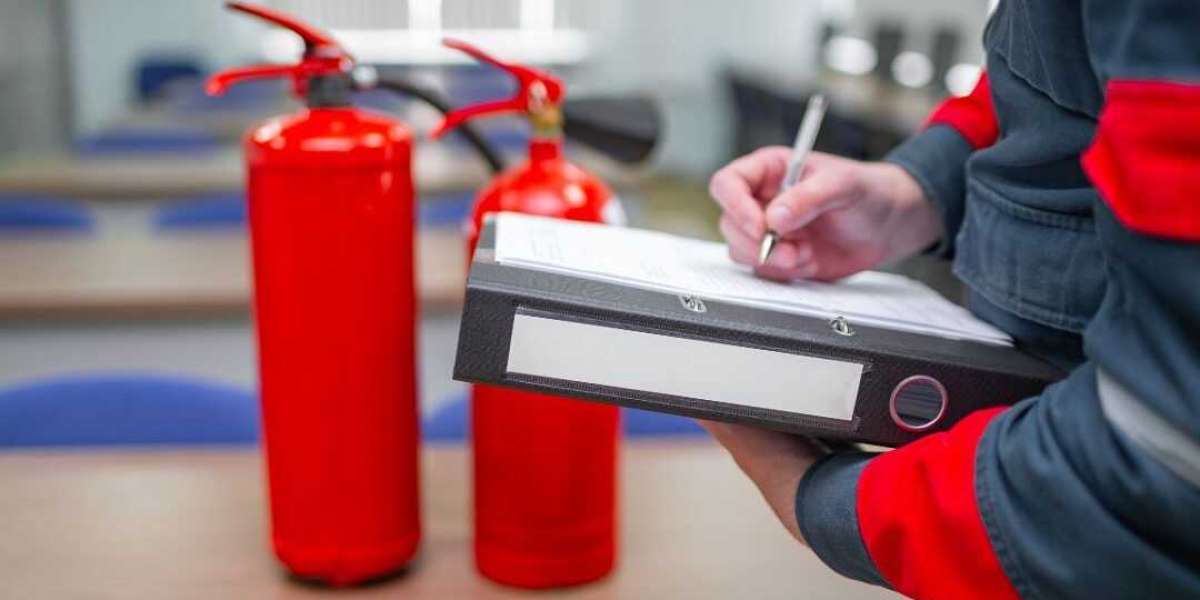In the vast landscape of modern infrastructure, commercial plumbing is an unsung hero, providing essential services enabling businesses, industries, and institutions to function seamlessly. From towering office buildings to bustling restaurants, and sprawling manufacturing plants, commercial plumbing is the lifeline that ensures proper sanitation, water supply, and waste management. In this blog, we will delve into the world of commercial plumbing, exploring its significance, key components, challenges, and the experts who keep the water flowing.
The Significance of Commercial Plumbing
Commercial plumbing serves as the backbone of various establishments, facilitating daily operations and promoting public health. Whether it's supplying water for consumption, providing sanitation systems, or managing waste disposal, the role of commercial plumbing is indispensable. From hospitals to hotels, schools to shopping centers, and industrial complexes to entertainment venues, every facet of modern life relies on reliable plumbing infrastructure.
Key Components of Commercial Plumbing
- *Water Supply Systems*: Reliable access to clean water is paramount for any commercial setting. Plumbing experts design, install, and maintain water supply systems that ensure a steady flow of potable water for drinking, cleaning, and other essential functions.
- *Drainage and Sewage Systems*: Efficient drainage systems prevent flooding and remove wastewater from commercial premises. Plumbers design intricate networks of pipes, vents, and drains that channel wastewater away from buildings to sewage treatment facilities.
- *Gas Lines and Ventilation*: In many commercial establishments, gas lines are required for heating, cooking, and other operations. Proper installation and maintenance of gas lines are crucial to prevent leaks and ensure safety. Additionally, ventilation systems help maintain indoor air quality.
- *Restroom Facilities*: Commercial plumbing also includes designing and maintaining restroom facilities that adhere to health and safety standards. This includes toilet systems, sinks, and fixtures.
Challenges in Commercial Plumbing:
The field of commercial plumbing presents unique challenges due to the scale and complexity of commercial establishments. Here's an elaboration on these challenges:
Size and Complexity: Commercial buildings are often expansive and have intricate plumbing systems. Plumbers working in this sector need to have a deep understanding of architectural blueprints and plumbing codes to design and install plumbing systems that meet the specific requirements of these large spaces. They must consider factors such as water pressure, flow rates, and the distribution of fixtures throughout the building.
Maintenance and Repairs: Commercial plumbing systems experience heavy usage, which can lead to accelerated wear and tear. Regular maintenance is essential to keep these systems in optimal condition. Plumbers must conduct inspections, identify potential issues, and perform repairs promptly to prevent disruptions to business operations. Neglecting maintenance can result in costly breakdowns and downtime.
Code Compliance: Commercial plumbing must adhere to stringent building codes and regulations. These codes are in place to ensure the safety and health of the building's occupants and the public. Plumbers working in the commercial sector must stay up-to-date with the latest codes and regulations to avoid violations. Failure to comply with these codes can lead to legal issues and the need for costly retrofits.
Emergency Services: Plumbing emergencies in commercial settings can have severe consequences. A burst pipe, sewage backup, or other plumbing issues can lead to significant downtime, financial losses, and damage to property. Commercial plumbers must be prepared to respond quickly to emergencies, with the tools and expertise to address the issue promptly and minimize disruptions to business operations. This requires 24/7 availability and the ability to handle a wide range of emergency scenarios.
Customer Expectations: Commercial clients have high expectations when it comes to plumbing services. They rely on plumbing systems to keep their businesses running smoothly. Plumbers working in the commercial sector must be prepared to meet these expectations by delivering efficient, high-quality services. This includes completing projects on time and within budget, as well as providing excellent customer service and communication throughout the process.
The Experts Behind the Scenes:
Commercial plumbing is indeed a specialized field that relies on the expertise of highly skilled professionals. Here's a closer look at the experts who play essential roles behind the scenes in commercial plumbing projects:
Commercial Plumbers: Commercial plumbers are the backbone of the field. They are highly trained and experienced professionals who specialize in designing, installing, and maintaining plumbing systems for commercial properties. Their expertise goes beyond residential plumbing, as they must navigate the complexities of larger and more intricate systems found in commercial buildings. They are responsible for ensuring that water supply, drainage, and sanitation systems function efficiently and comply with local building codes and regulations.
Architects: Architects are key collaborators in commercial plumbing projects' planning and design stages. They work to integrate plumbing systems seamlessly into the overall building design. This includes determining the placement of fixtures, pipes, and drainage systems to optimize functionality and aesthetics. Architects must also ensure that the plumbing design aligns with the building's structural and spatial requirements.
Engineers: Mechanical and plumbing engineers play a critical role in the design and engineering of commercial plumbing systems. They work closely with architects to develop detailed plans for plumbing layouts, specifying materials, equipment, and system configurations. Engineers also consider factors such as water efficiency, energy conservation, and compliance with building codes. Their expertise ensures that plumbing systems are efficient, safe, and environmentally friendly.
Contractors: General contractors oversee the construction and installation of plumbing systems in commercial projects. They are responsible for coordinating the work of various trades, including plumbers, electricians, and HVAC technicians. Contractors ensure that plumbing installations are executed according to the approved plans, on schedule, and within budget. They also oversee quality control and safety compliance during construction.
Inspectors: Building inspectors play a crucial role in verifying that plumbing installations in commercial buildings meet local building codes and regulations. They conduct inspections at different stages of construction to ensure compliance with safety and quality standards. Inspectors provide an independent assessment of the work and help ensure that plumbing systems are safe and functional.
Maintenance Teams: Beyond the construction phase, maintenance teams are responsible for the ongoing care and upkeep of plumbing systems in commercial buildings. They perform routine inspections, repairs, and preventive maintenance to ensure that plumbing systems continue to function efficiently and reliably. Maintenance teams are essential for minimizing downtime and addressing issues promptly.
Conclusion
As we go about our daily lives, it's easy to overlook the intricate systems that make our modern world function. Commercial plumbing, with its role in providing clean water, efficient waste management, and proper sanitation, is an essential component of this intricate tapestry. The seamless operation of businesses, industries, and institutions depends on the expertise of commercial plumbers who work tirelessly behind the scenes. From ensuring water supply to managing complex drainage systems, commercial plumbing is the backbone of our built environment, shaping how we live, work, and play.



